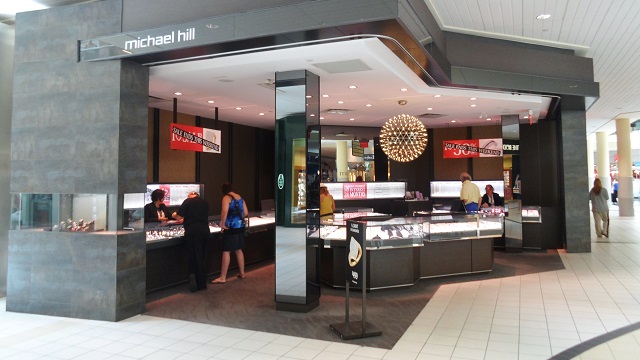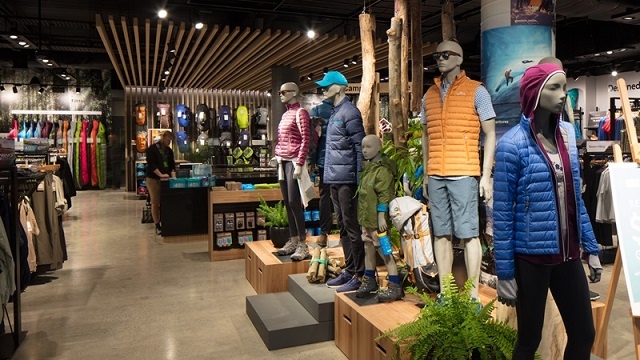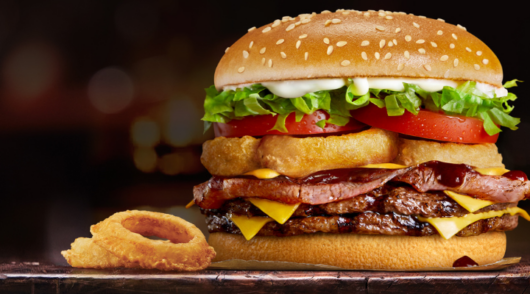
Retailers in Australia and New Zealand are closing, or have closed, their international stores as some countries institute lockdowns to stop the spread of the global coronavirus pandemic.
In Australia, retail stores are currently exempt from the ban on indoor gatherings of more than 100 people. Patagonia and Fjallraven are among the first retail stores to voluntarily close stores to protect the health of staff and customers, while Flight Centre has closed 100 stores to cut costs.
Major Australian retailers including Myer and David Jones have chosen to remain open and are still operating to date, although Myer closed a single store in Castle Towers shopping centre on Thursday, after an employee tested positive for COVID-19.
Both department stores have announced they have boosted in-store cleaning and hygiene practices. According to Myer, it has suspended other services in its stores that promote direct human contact like skin-to-skin beauty services and bra and suit fittings.
Michael Hill
Jewellery retailer Michael Hill International announced it is closing its store network in Canada for two weeks following a public health guidance from the government. This decision will be revisited and lifted or extended as necessary.
The company said during the close down period, it will stand down the majority of its Canadian workforce and will allow leave without pay or leave entitlements to be taken up.
“During these challenging times, the health and safety of our people and customers are foremost in our minds,” said company CEO Daniel Bracken.
“The board and management team are confident that the business will be able to continue to work constructively with all of its stakeholders to navigate the uncertainties presented by the COVID-19 public health crisis.”
Michael Hill announced it is actively managing the trading and operational impact of public health measures related to the management of COVID-19 in each of its trading markets of Australia, New Zealand and Canada.
The business has enacted a crisis plan to address emerging operational and trading issues expeditiously.
“While there remain many uncertainties about the potential impact and duration of the crisis, we are focused on taking all necessary actions to reduce our costs and cash outflows so that they better match the very subdued consumer demand in all our markets,” Bracken said.
According to the retailer, there has been a significant drop in foot traffic in each of their trading markets in the last two weeks, and there has been a corresponding impact on sales.
The company said it will provide further details when they are available as part of its regular FY20 Q3 trading update in early April.
“The company has not provided guidance on its earnings for the current financial year and is not in a position to provide a reliable forecast.”
It added that existing analyst forecasts of earnings are also unreliable as they were prepared on the basis of a more predictable trading environment.
“The company has taken decisive action to reduce forecast and non-essential capital expenditure, reducing non-essential spend and implementing a hiring and travel freeze,” Michael Hill announced. “Additionally, all labour costs across all facets of the business are under review to optimise our cost of doing business.”
The company is actively in talks with landlords in all its markets to seek temporary rent relief while there is interruption in trading.
“All aspects of working capital and cashflow are being scrutinised including inventory levels where the company is confident it has sufficient levels to meet likely demand.”
Domino’s Pizza
Pizza giant Domino’s Pizza Enterprises voluntarily closed its stores in France for 15 days effective from Thursday, March 19. Stores in its other nine markets, however, are permitted to trade and continuing to serve customers.
The fast food retailer said it is not certain if the temporary closure of its stores in France will have a material effect on the financial results for FY20.
It said Domino’s stores are technically permitted to trade in France, but the company chose to close stores to align with community expectations. The government has also provided a range of support measures for businesses that temporarily close.
Stores in other markets are receiving positive support for initiatives including Zero Contact Delivery and Zero Contact Carry-Out.
“In France it is clear our community prefers businesses to close and, in an environment in which several quick service restaurants have closed, the community expects the same of Domino’s,” Domino’s CEO Don Meij said.
Meij said the company will re-assess the situation at the end of the 15-day period and make whatever decision is right for the community at that time in terms of a resumption in trading.
He said the company is relying on advice from the government, medical experts and customer feedback.
Harvey Norman
Electronics retailer Harvey Norman closed its Slovenian stores by government decree on March 16. They will remain closed until further notice. The retailer’s stores in Malaysia will be closed from March 18 until March 31.
“The company is taking steps to ensure the health and safety of employees and customers,” Harvey Norman said in a statement.
Harvey Norman posted an increase in sales at its 195 Australian franchises, which rose by 9.4 per cent year-on-year from March 1 to 17. It posted a 12.4 per cent growth at its 39 New Zealand stores.
Harvey Norman’s sales at its franchises in Ireland posted a 53 per cent increase even though it only has 13 stores there.
Sales fell by 1 per cent in its Singapore flagship store, however.

Kathmandu
Outdoor brand Kathmandu has reported disruption in its European operations where the majority of Rip Curl stores and wholesale customers have been forced to close.
The business further stated that it has experienced significant declines in footfall to stores in Australia and New Zealand, impacting sales performance.
Due to these effects and the rapidly evolving nature of them, the group said it is unable to forecast the extent of the COVID-19 impact on its trading results for the second half of the fiscal year.
The company said it has a pandemic plan in place to protect its employees, manage potential cases of COVID-19 within its businesses and address operational changes required to maintain business continuity.
The group is currently not expecting material delays in product availability.
To help mitigate some of these effects, the business has announced it will take decisive action, specifically in reducing operating expenses, deferring non-essential capital projects, optimising labour costs, managing inventory levels and implementing a travel and hiring freeze.
“Given the rapidly evolving COVID-19 situation, we have been reviewing available advice and data on a daily basis and taking steps to protect the wellbeing of our team and customers, and to reduce the adverse impact on trading,” said Kathmandu MD and CEO Xavier Simonet.





